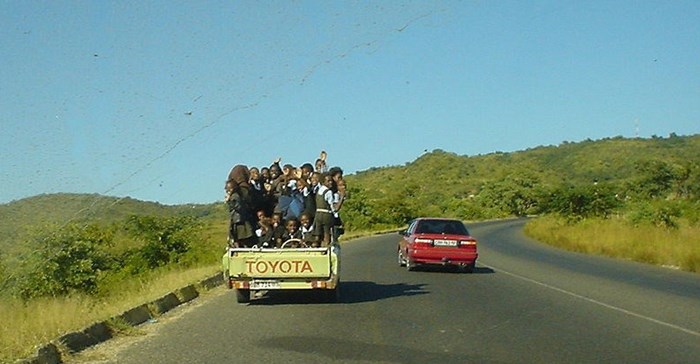
"Thousands of children are transported to school and back every day – either by their parents or by operators who are paid to get the learners to where they need to be. It has come to the City’s attention that few parents and principals, or even those providing transport services, know what is required by law when it comes to scholar transport. As such, Transport for Cape Town, the City’s transport authority, has embarked on a three-month programme to inform parents, crèches, schools and operators about the regulations that apply to those who are paid to transport children,’ said the City’s Mayoral Committee Member: Transport for Cape Town, Councillor Brett Herron.
Councillors will visit schools and crèches in their wards to engage with teachers, principals, parents and transport operators to remind and inform them of these regulations.
"The councillors will hand out leaflets and posters which clearly stipulate the rules and requirements. It is the responsibility of every parent, principal and operator to familiarise themselves with the regulations and to ensure that those who are paid to provide scholar transport abide by the rules. I urge parents to use the leaflets when deciding to whom they entrust their children’s safety," said Herron.
Any person who is paid to transport children to and from pre-schools and schools must abide by the regulations – irrespective of contracts with the schools or private arrangements with parents or caregivers. "I want to remind operators that no child may be transported with a bakkie, delivery van, or truck. Those who want to charge for providing scholar transport must apply for an operating licence from the Provincial Regulatory Entity – a licence costs R300 and is valid for one year," said Herron.
• be less than 12 years old
• be registered and licensed in the Western Cape
• be tested at a roadworthy centre every six months
• have a valid operating licence
• have a special vehicle fitness certificate
• clearly stipulate the number of passengers allowed in the vehicle
• have a seatbelt for every child and a car seat for those younger than three years
• be clearly marked as a ‘scholar transport’ vehicle
• have a fire extinguisher and first-aid kit on board
• have a passenger list of all of the children who are being transported
• have copies of each child’s birth certificate or identity document (ID) on board in case of an accident
• a professional driving permit
• an ID indicating your name, ID number, kind of vehicle you are permitted to drive, and the name of the owner or holder of the operating licence
• a first-aid certificate
• an advanced or defensive driving qualification
• another responsible adult accompanying the driver when you transport pre-primary and primary learners, or learners with physical, mental or visual needs
• a letter of agreement with the school or letter from the principal explaining the need for the service, or a letter from the parents – copies of these must be in the vehicle at all times
• a description of the route to be travelled
• a valid tax clearance certificate from the South African Revenue Service
‘Those who operate illegal scholar transport services will be fined and their vehicles impounded. Should a vehicle be impounded for the fourth time, it will become the property of the State,’ said Herron.
The following fines are applicable:
• R2,500 when a vehicle is impounded
• R7,000 to have an impounded vehicle released if it is a first offence
• R10,000 to have an impounded vehicle released if it is a second offence
• R15,000 to have an impounded vehicle released if it is a third offence
"I also want to remind principals that they should provide a safe area where children can be dropped off and picked up from school. This pick-up and drop-off zone must be situated off-street if the school is on a busy road. These rules may seem pedantic to some, but our children’s safety comes first and must be a priority for all of us," said Herron.
Parents, principals, and interested parties are requested to please contact their ward councillors for more information about the briefing sessions at their local schools.